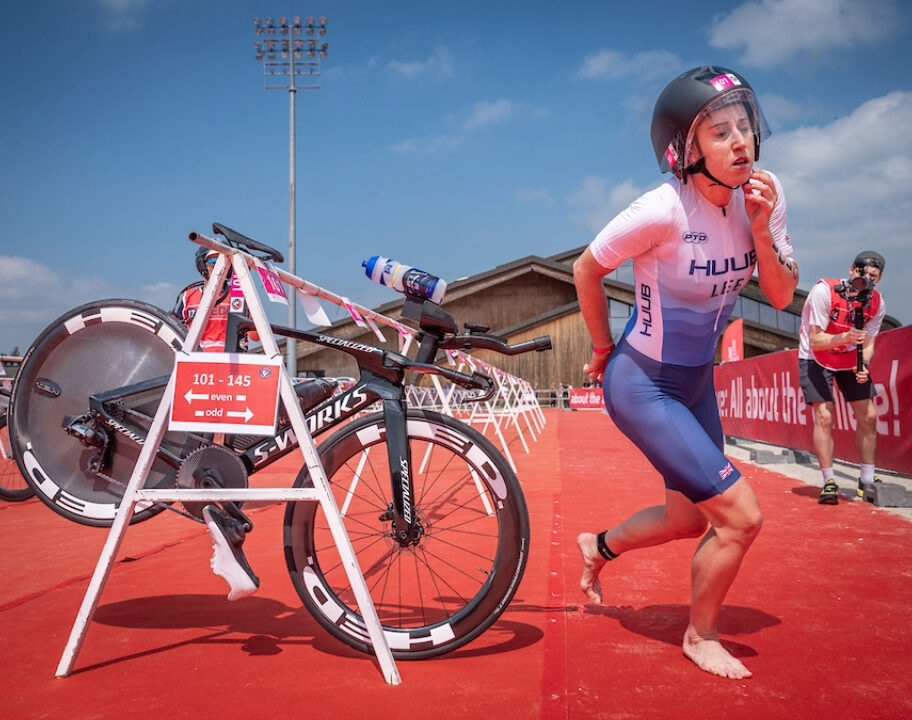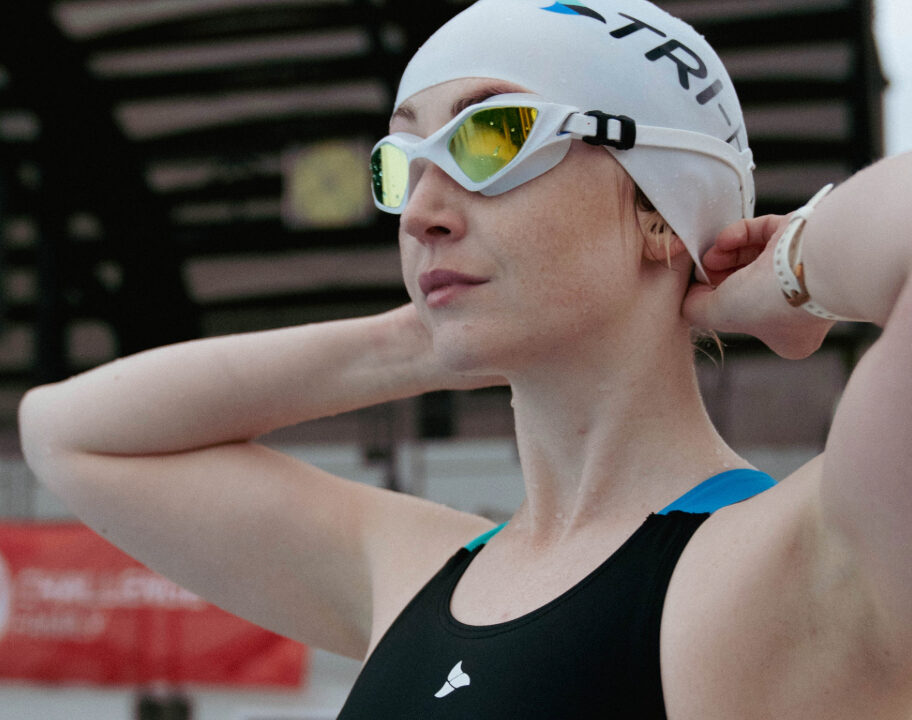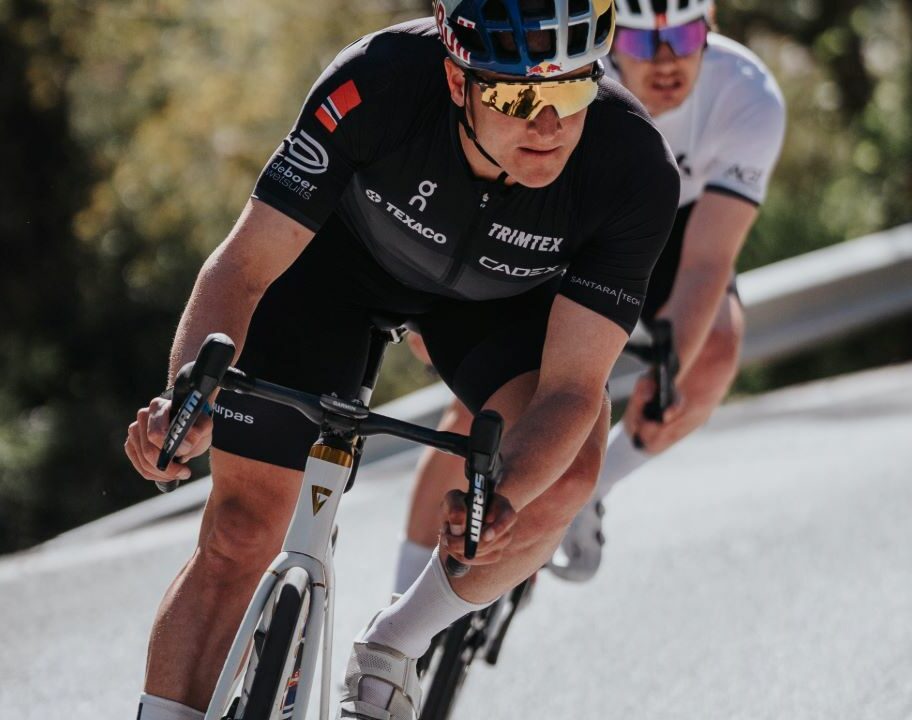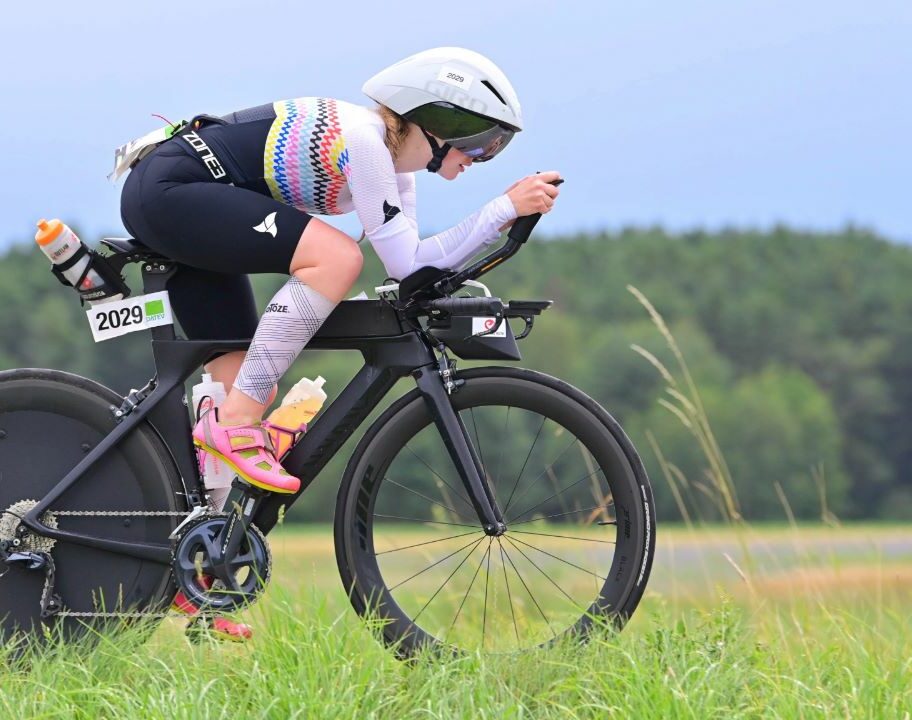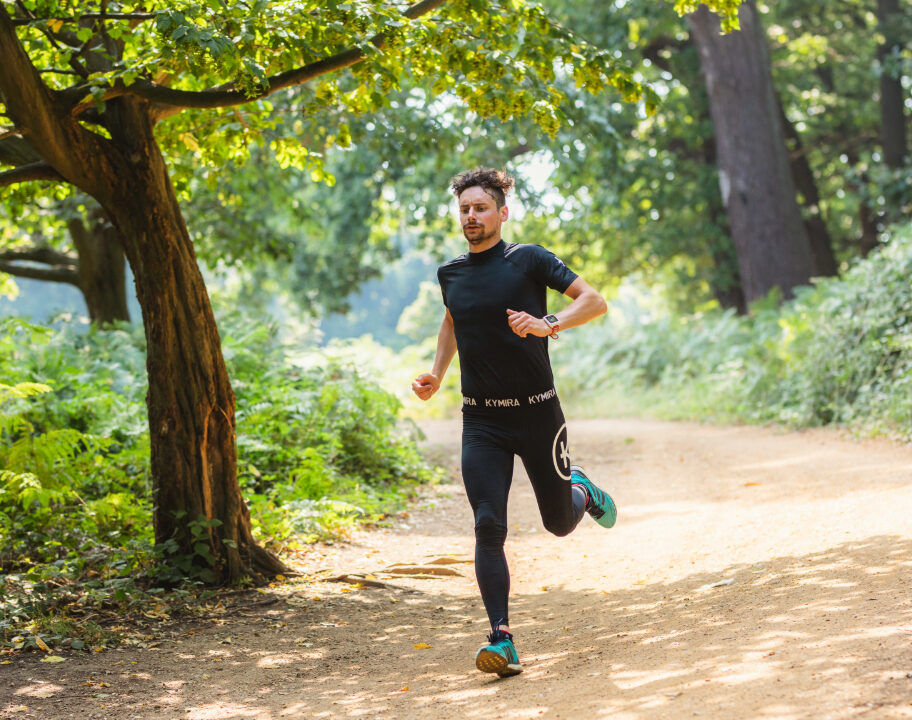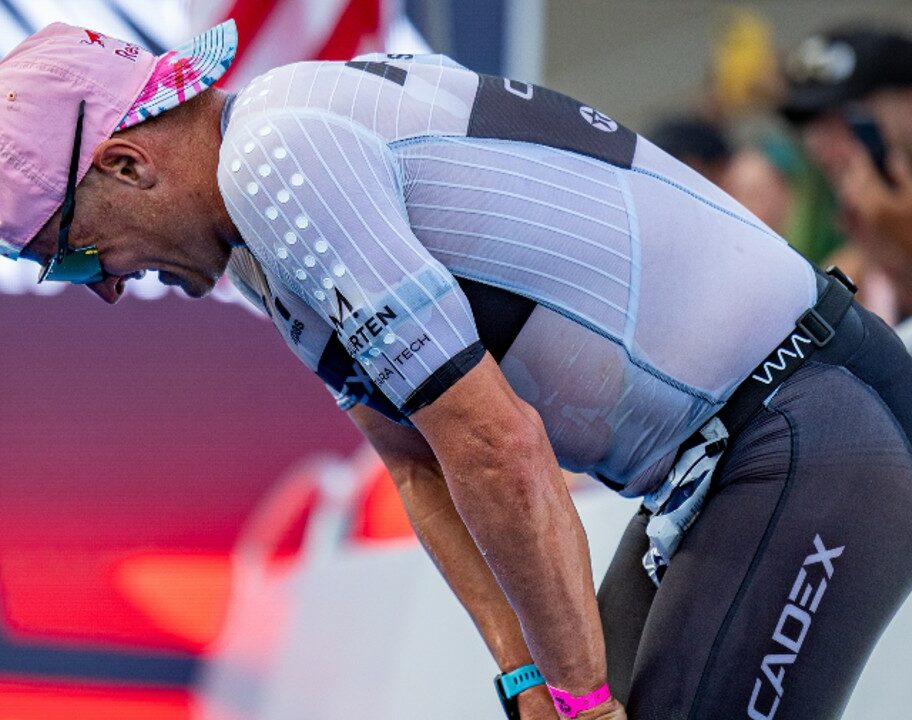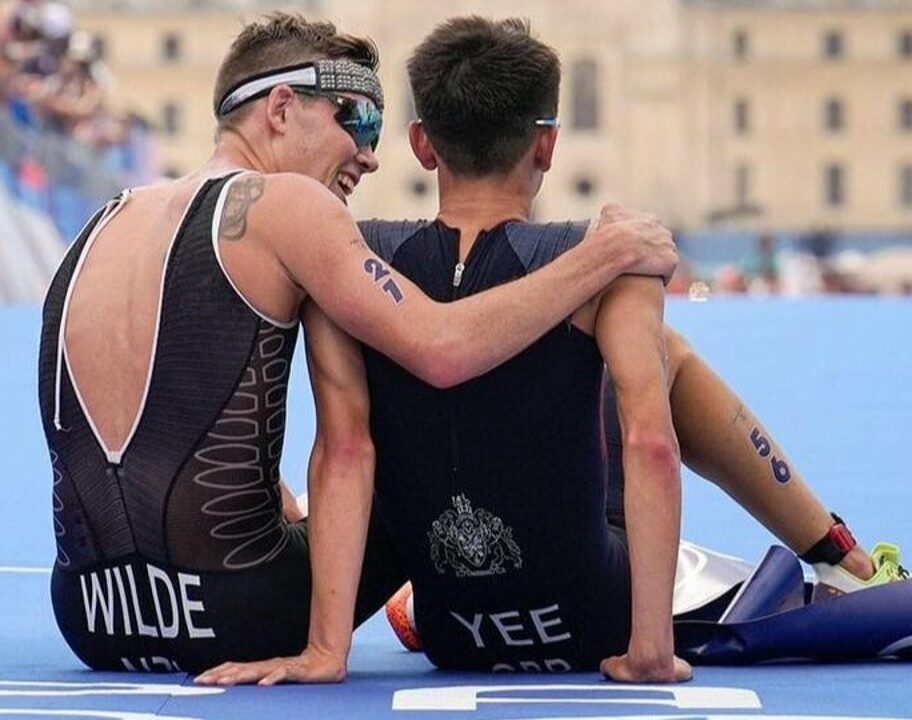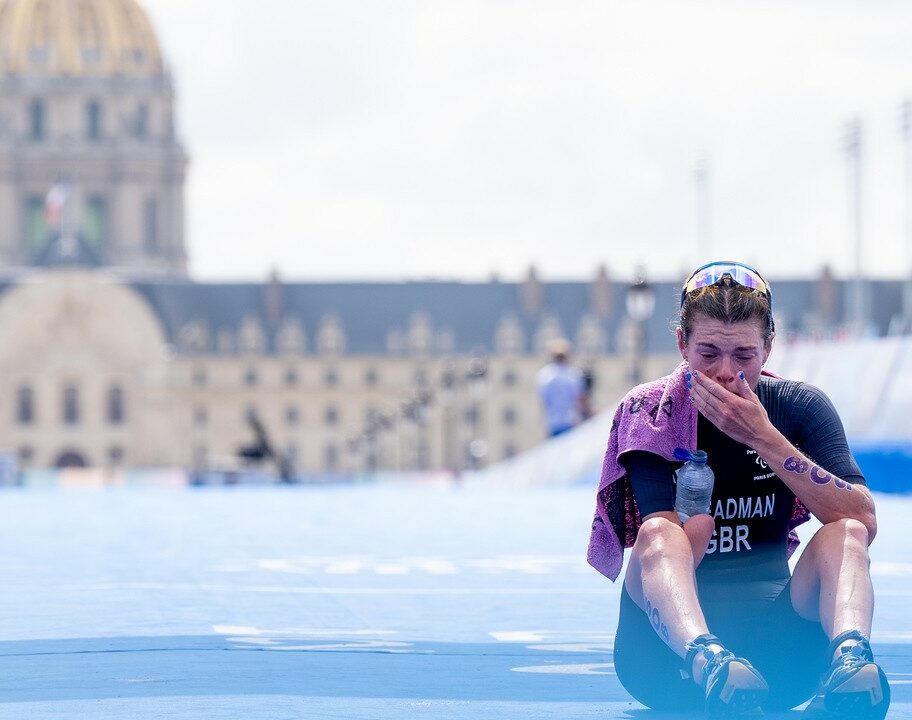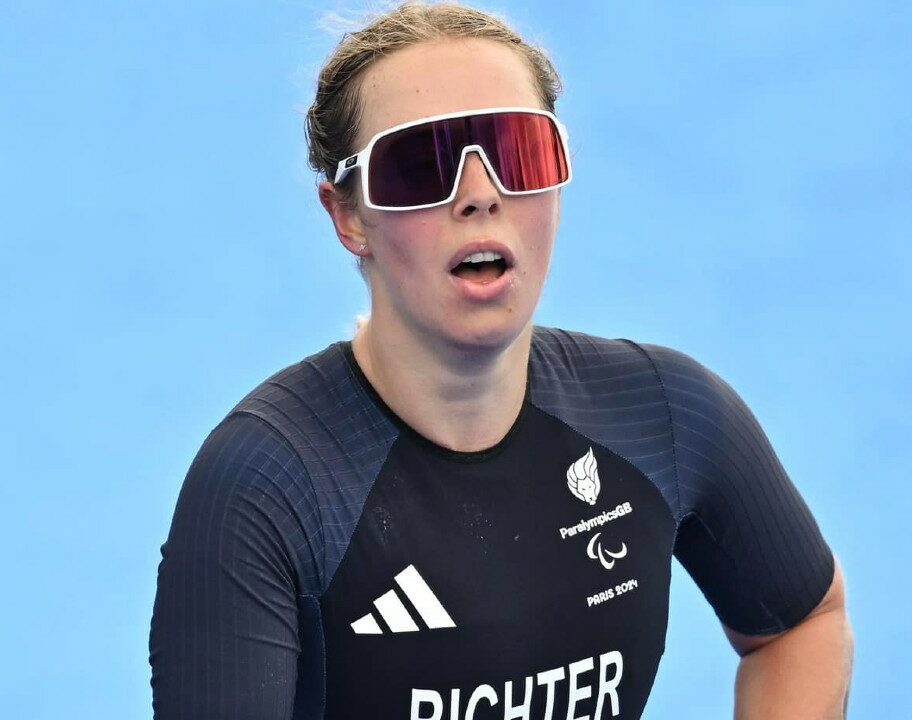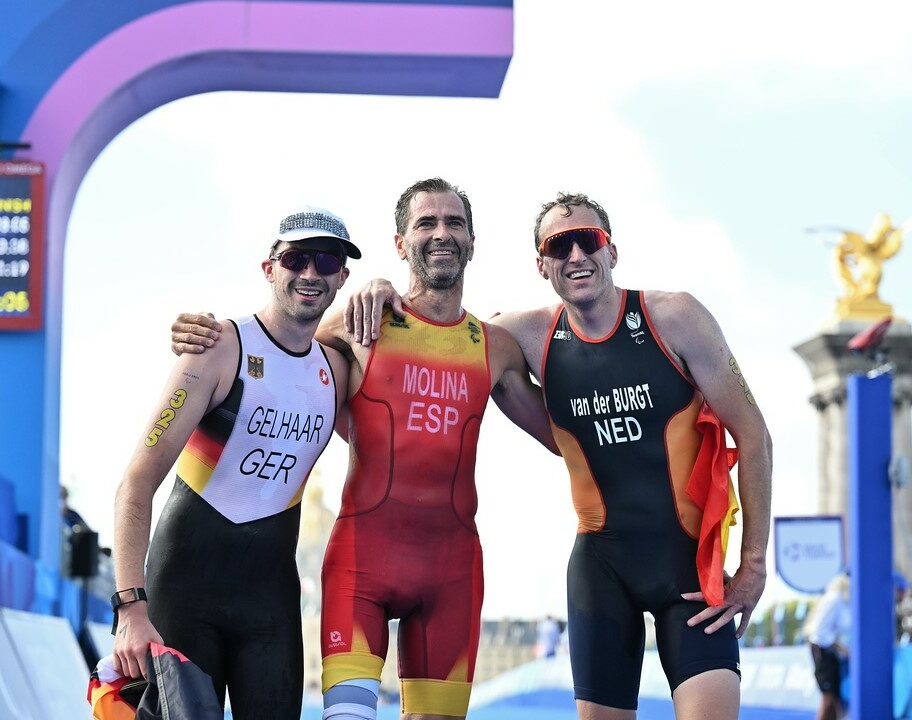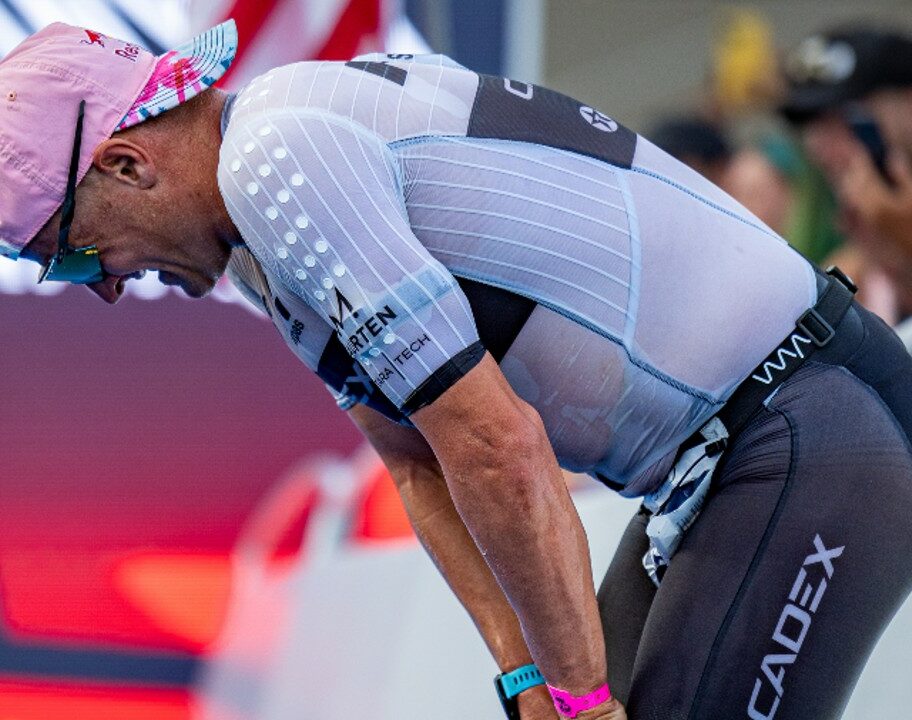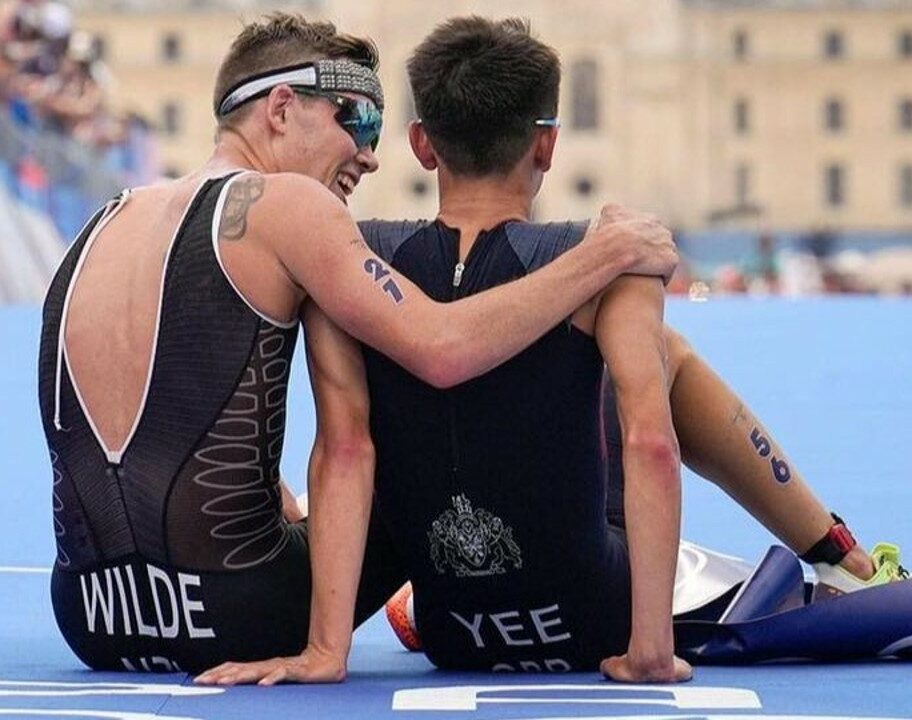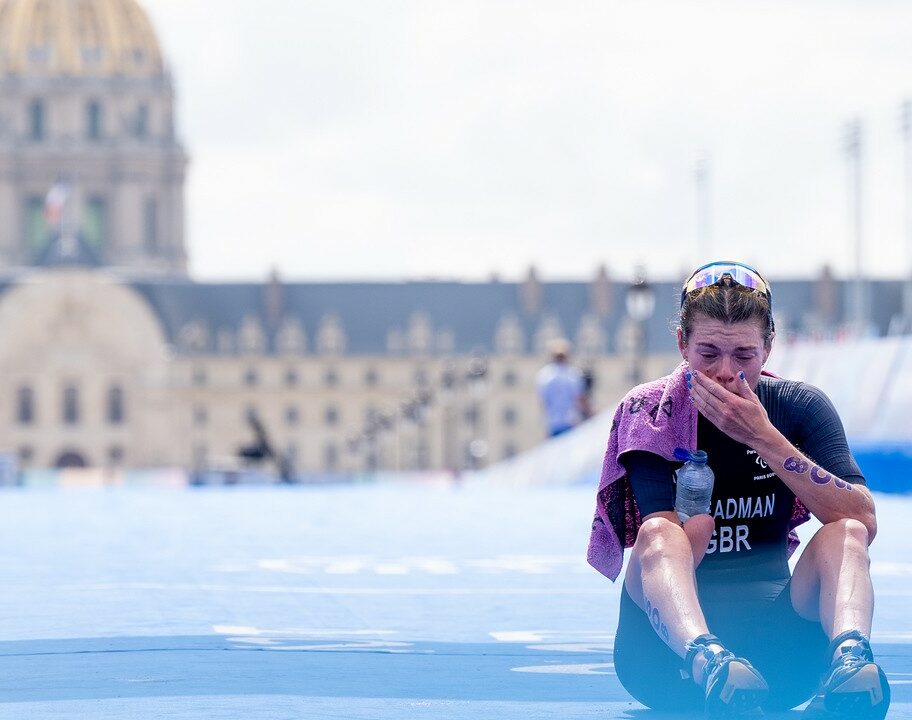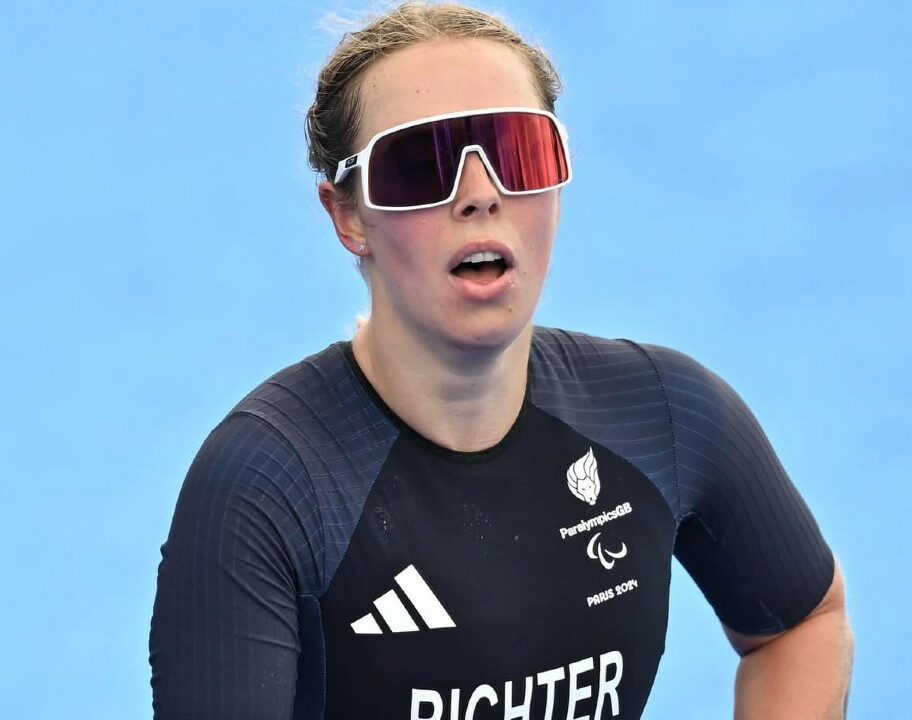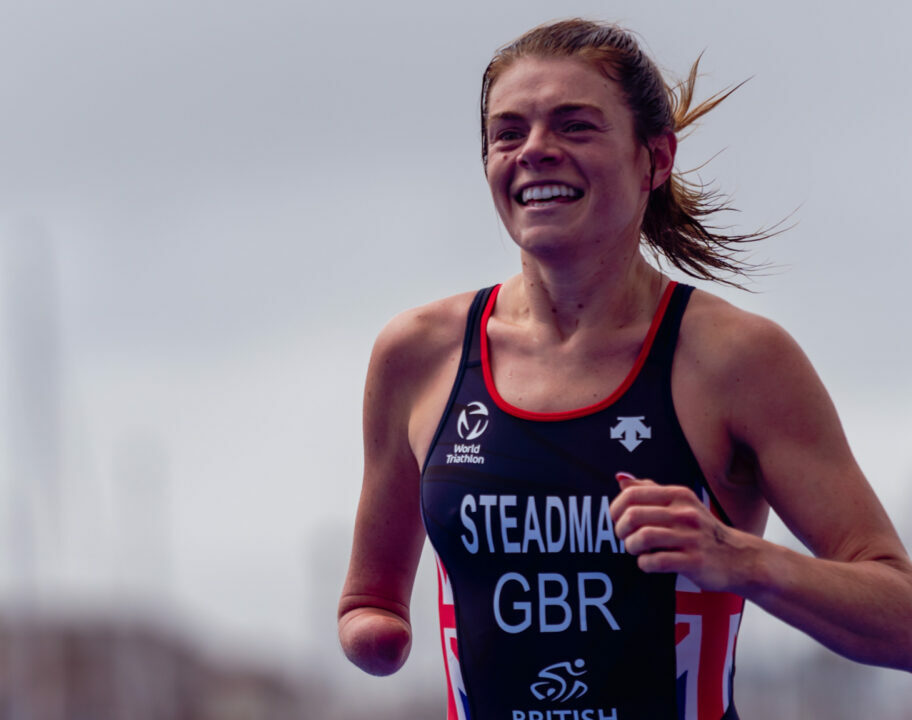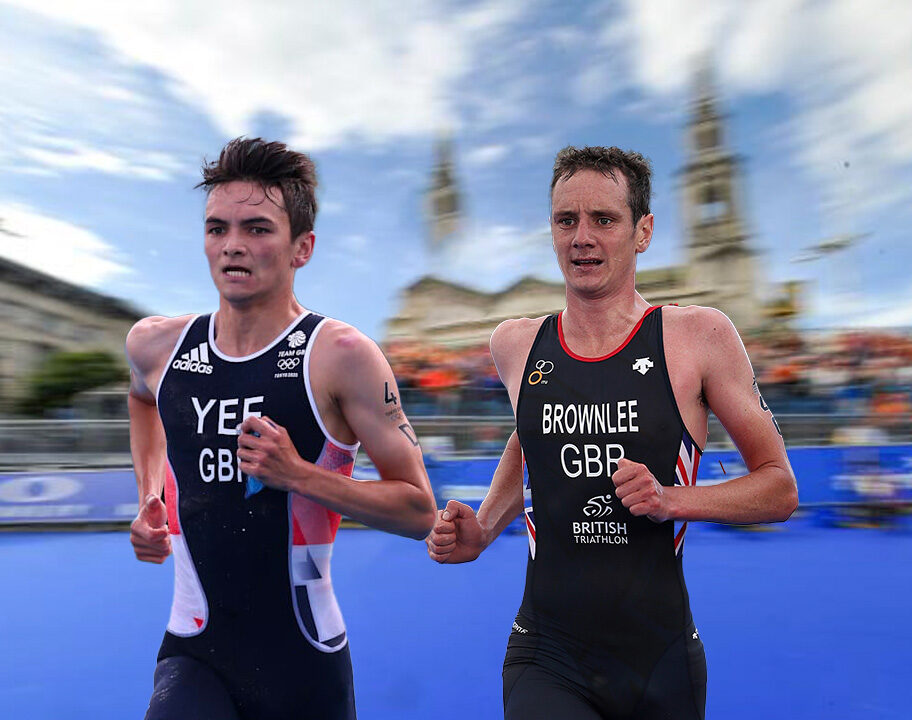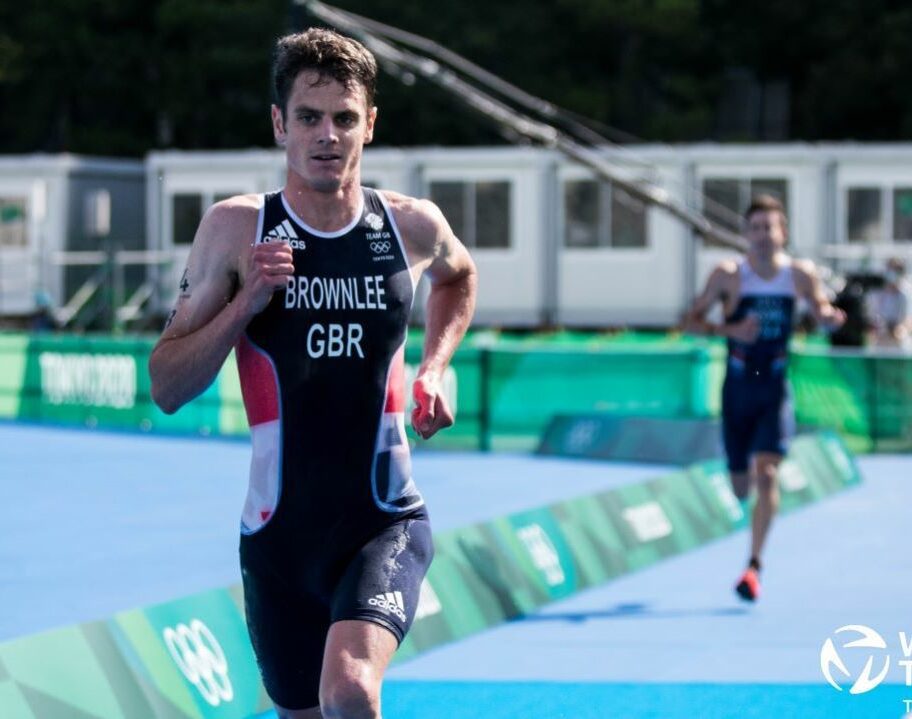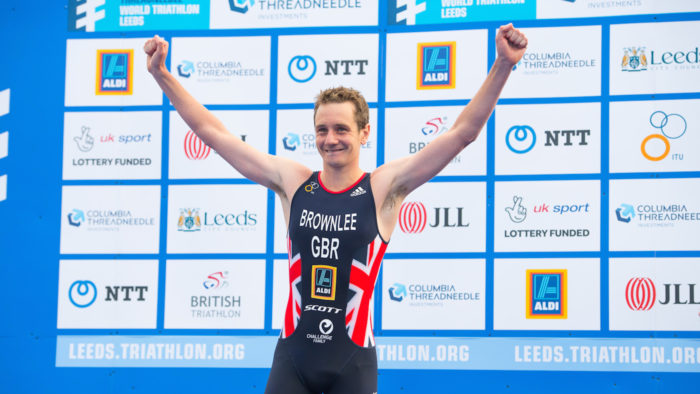Saturday’s second edition of the World Triathlon Para Series Swansea was the fourth and final scheduled WTPS event of the season, the top tier of Elite Paratriathlon racing.
We didn’t get swim-bike-run, but we did get some excellent racing in a revised aquathlon format.
Wet. Windy. Weather.
I spent Friday and Saturday in Swansea since, as last year, it was an event I was also working at as on-site commentator / announcer, alongside Rio 2016 PTVI silver medallist, Alison Peasgood, and Paralympic Swimming gold medallist, Liz Johnson.
In stark contrast to the glorious sunshine of the 2022 edition, high winds and driving rain seemed unwilling to depart the Prince of Wales Dock at the SA1 Waterside, all set on dismantling (literally…), all the efforts that were going into building the race venue. You can plan a lot, but you can’t control the weather.
On late Saturday afternoon the decision was made, with consideration of the forecasts ahead too, that the bike leg would be removed. That meant a revised aquathlon format… but the potential that should there be further deterioration in conditions, the entire event could be under threat from happening at all.
Thankfully that didn’t happen, and with a massive respect to the British Triathlon organising team and the crew and partners / contractors / officials / volunteers that worked on this event, the whole infrastructure was changed overnight. Extended road closures sorted for an adjusted run course, schedules updated and a plethora of items sorted which the vast majority will never see.
Truly, it was incredible dedication with a ‘can do’ attitude which deserves public praise – which is why it’s here, before we get to racing itself.
Before that though, some details…
Aquathlon impacts
As happened this year at the European Championships in Madrid, a swim being cancelled and a race being converted to a duathlon is not unusual. What’s rare (unique?) for an Elite paratriathlon is that fallback plan being a swim-run, and one impact of that is that for the PTWC (Wheelchair) and PTVI (Visually Impaired) categories, there is no formal Competition Rule (“Interval Start System”) that defines, in PTVI for example, the time offset starts between the fully blind (PTVI1) and partially blind (PTVI2/PTVI3) athletes.
As a result, all of the PTVI athletes (by gender) started together, and all of the PTWC athletes (by gender), started together. With Paralympic Games qualification points at stake, expect that scenario to be addressed in the 2024 edition of the World Triathlon rules updates.
And with that small print and background out of the way, let’s get to some of the highlights of the day.
Jetze in a different league
When you’ve won 10 ParaCycling World Championship titles and can finish on the podium in Marathon Majors events, it’s perhaps not a surprise that we typically overlook the swim ability of Jetze Plat. Without that offset (Jetze typically is chasing down the ‘H1’ athletes in is division), that was brought home when he was immediately to the front and solo within a minute of racing in the men’s PTWC class.
Plat was so quick that he was just two seconds away from setting the fastest swim time of the day across ALL categories. He is, absolutely, one of the truly great para athletes across all sports, not just within triathlon. Next up, defending his Road Race and Time Trial titles UCI Cycling World Champs in Glasgow. I’m certainly not betting against him adding the double for the sixth consecutive time.
It’s not hard to see why he is unbeaten in paratriathlon competition since 2015 – and it’s quite possible he will compete in three different sports at the Paris 2024 Games. Star quality.
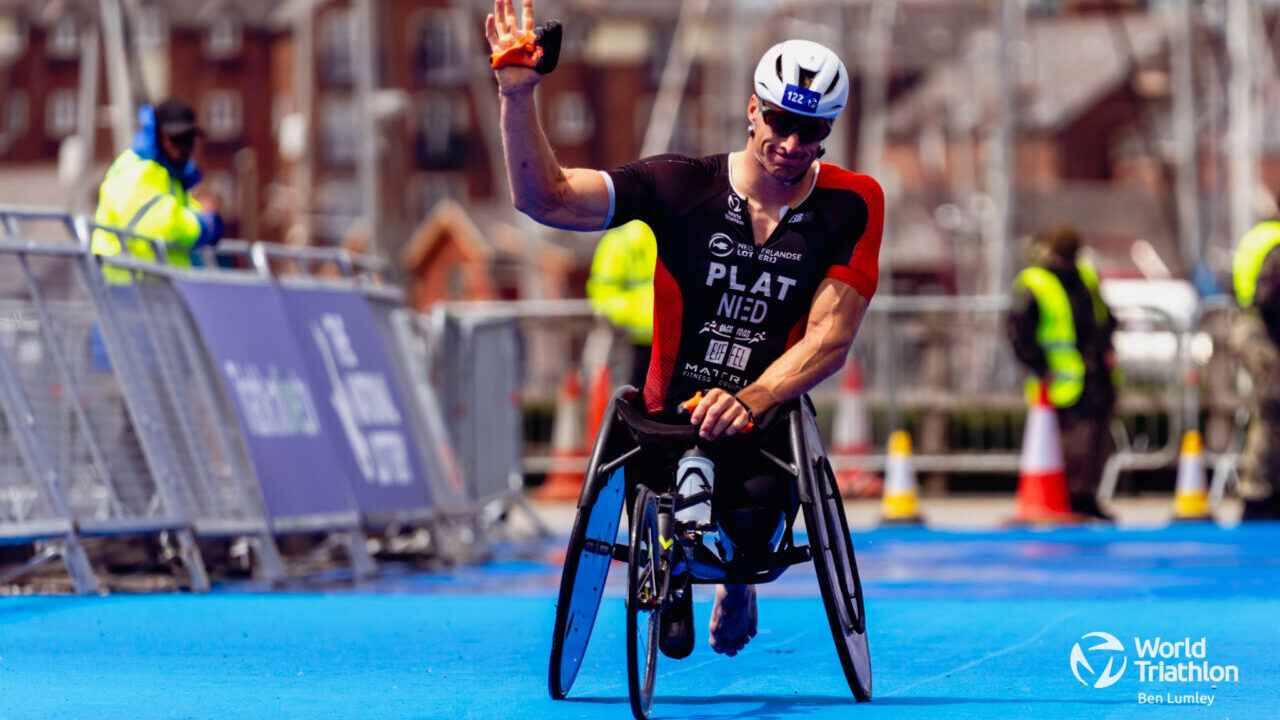
Clash of the Categories!
The closest ‘battle’ of the day was between two stars in different races. Martin Schulz (GER), the PTS5 champion at Rio 2016 and Tokyo 2020, and Alex Hanquinquant (FRA), PTS4 gold medallist in Japan, started in the same wave. After Alexis was slightly quicker in the swim, he was caught in the run by Schulz – who was in a tight race with Ronan Cordeiro (BRA) at the time – but any thoughts that Schulz would pull clear were soon extinguished.
This was clearly a competitive challenge which both were relishing, with constant surges and efforts from both to pull away soon seeing the other return the favour. Schulz is an amazing athlete – regularly competing in the German Elite Bundesliga, so seeing Hanquinquant – a below knee amputee remember – matching him for pace, and running so smoothly, was seriously impressive.
They both hit the blue carpet together and sprinted shoulder-to-shoulder, both given the same time at the finish. Fantastic to watch and a brilliant race to call from the commentary booth, both will start as favourites to retain the Paralympic titles next year.

No stopping Grace Norman
Three athletes have all but swept the podium at major championships and Games for the past seven or eight years, and so the women’s PTS5 race was always going to be in focus with the trio of Grace Norman (USA), Lauren Steadman (GBR) and Claire Cashmore (GBR) reunited in one race, for the first time since Steadman took the honours in Tokyo.
Such has been Norman’s run form this year, that the format change and absence of the bike was always going to make this a tough task for the Brits, with all three typically so well matched in the swim. The opening discipline went to form, but from there it was Norman all the way, with Claire just getting the better of Lauren in the final 100m of the run.
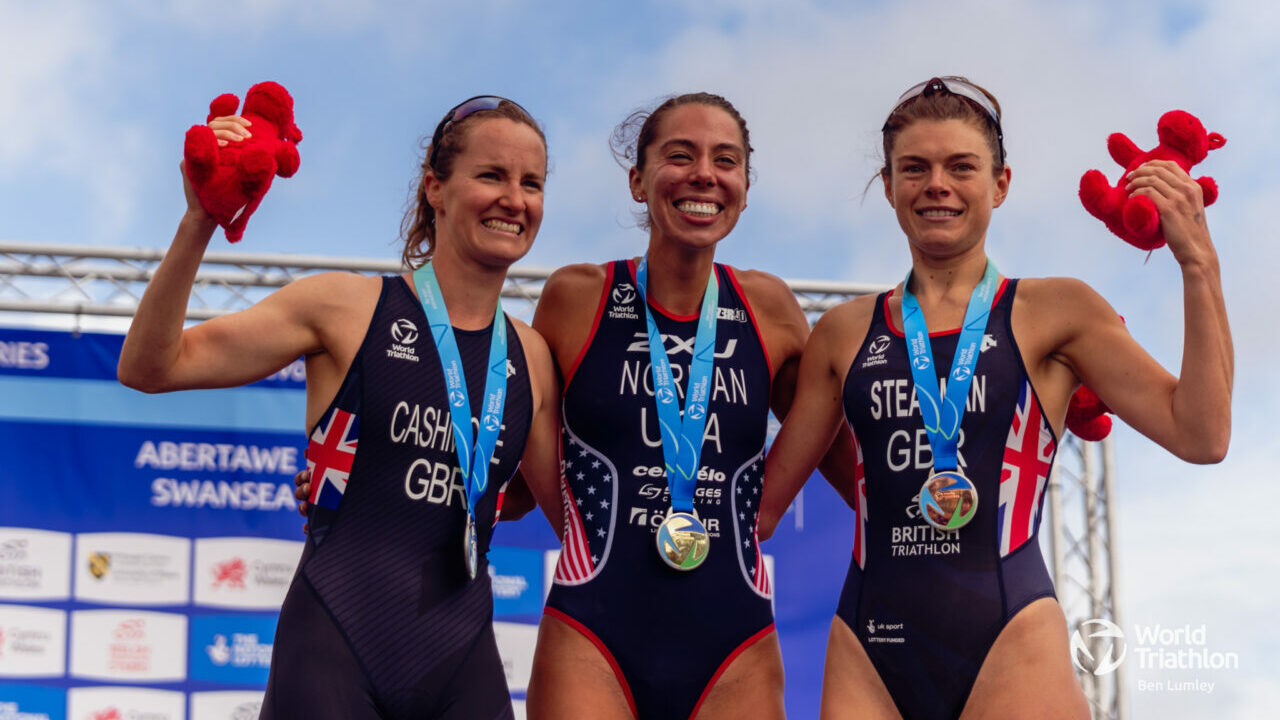
Ellis and Kelly at the double
While the Brits took silver and bronze in the Women’s PTS5, they went one better in the Men’s Visually Impaired (PTVI). No surprise that it was Dave Ellis and Guide Luke Pollard leading the way, and they would win in Swansea for a second year.

While Ellis has the experience, Oscar Kelly (and Guide Charlie Harding) represent the NextGen youth. Kelly impressed a week ago in Montreal, when a close second, and he displayed the progress in his run speed in Swansea. The PTVI category for men is one of the deepest, and with a swift transition, they were just a few metres behind Ellis and Pollard starting the run. That was key, and gave them a small advantage of the talented pairing of Thibaut Rigadeaux (Guide Cyril Viennot) and despite the French pairing closing in a touch over the 5km, they were still 12 seconds short on the blue carpet at the finish line.

Hannah on the road back
PTS4 World Champion in 2018 and 2019, Hannah Moore (GBR) was out of the sport internationally for the best part of four years. Injuries, no PTS4 category on the Tokyo program and some dark times, she’s been back into action in recent months, include a European Championship bronze and a Para Cup win in Spain.
A great swim in Swansea saw her start the run with an advantage of around two minutes, and from then on it was a case of being the ‘hunted’, as American star Emma Meyers cut into that lead on each lap – at a rate which was looking like it was going to the very close at the finish. Ultimately Myers just made the pass in the final few hundred metres, but it was an exciting chase and another step forward for Moore who will rightly be pleased with her efforts over the past six weeks, while excited for the progress that needs to follow to be in contention for honours in Paris next year.

Les Bleus
While Alexis Hanquinquant is the headliner for France, their talent and depth currently is impressive – and puts them in a fine position for the big one next year. Mona Francis (PTWC), Jules Ribstein (PTS2) and Elise Marc (PTS3) all topped the podium, meaning that La Marseillaise was a regular part of the medal ceremony, with plenty more silver and bronze medals heading back across the English Channel too.

Congratulations to all of the athletes, who dealt with the format changes so positively, and put on some great racing action under challenging conditions. We look forward to continuing to follow the road the Paris 2024 – with the Test Event in August, the next major milestone.
Here is the full podium breakdown.
World Triathlon Para Series Swansea Results
Saturday 15 July 2023 – 750m / 5km
(Format change to Aquathlon – no offset starts for PTWC or PTVI)
PTVI
Men
- 1. Dave Ellis (GBR), 27:41 (Guide: Luke Pollard)
- 2. Oscar Kelly (GBR), 28:24 (Guide: Charlie Harding)
- 3. Thibaut Rigaudeau (FRA), 28:36 (Guide: Cyril Viennot)
Women
- 1. Francesca Tarantello (ITA), 32:24 (Guide: Silvia Visaggi)
- 2. Susana Rodriguez (ESP), 33:50 (Guide: Sara Loehr)
- 3. Heloise Courvoisier (FRA), 34:22 (Guide: Anne Henriet)
PTWC
Men
- 1. Jetze Plat (NED), 24:27
- 2. Geert Schippers (NED), 25:04
- 3. Louis Noel (FRA), 26:45
Women
- 1. Mona Francis (FRA), 30:05
- 2. Jessica Ferreira (BRA), 32:20
- 3. Mel Nicholls (GBR), 32:32
PTS5
Men
- 1. Martin Schulz (GER), 27:43
- 2. Ronan Cordeiro (BRA), 28:11
- 3. Filipe Marques (POR), 28:31
Women
- 1. Grace Norman (USA), 30:35
- 2. Claire Cashmore (GBR), 31:50
- 3. Lauren Steadman (GBR), 32:01
PTS4
Men
- 1. Alexis Hanquinquant (FRA), 27:43
- 2. Pierre-Antoine Baele (FRA), 28:53
- 3. Carson Clough (USA), 29:28
Women
- 1. Emma Meyers (USA), 38:47
- 2. Hannah Moore (GBR), 38:55
- 3. Kendra Herber (USA), 39:38
PTS3
Men
- 1. Daniel Molina (ESP), 32:29
- 2. Nico Van Der Burgt (NED), 34:26
- 3. Max Gelhaar (GER), 35:41
Women
- 1. Elise Marc (FRA), 35:27
- 2. Sanne Koopman (NED), 45:34
PTS2
Men
- 1. Jules Ribstein (FRA), 33:30
- 2. Mark Barr (USA), 33:44
- 3. Lionel Morales (ESP), 33:55
Women
- 1. Allysa Seely (USA), 38:50
- 2. Anu Francis (AUS), 39:39
- 3. Cecile Saboureau (FRA), 39:40

